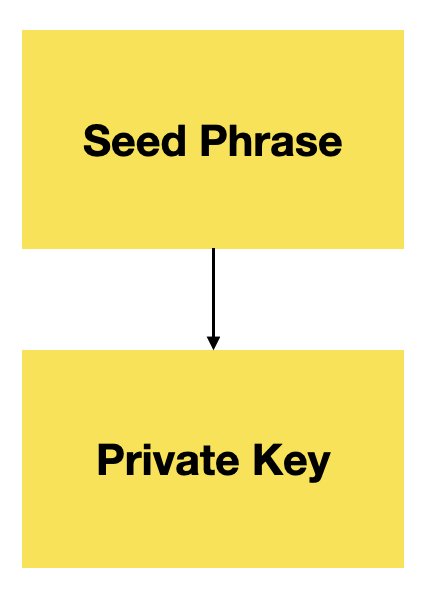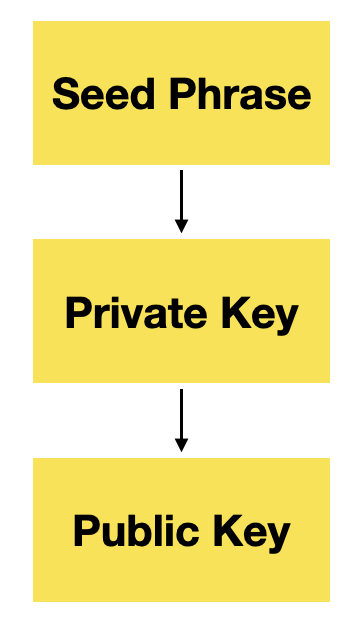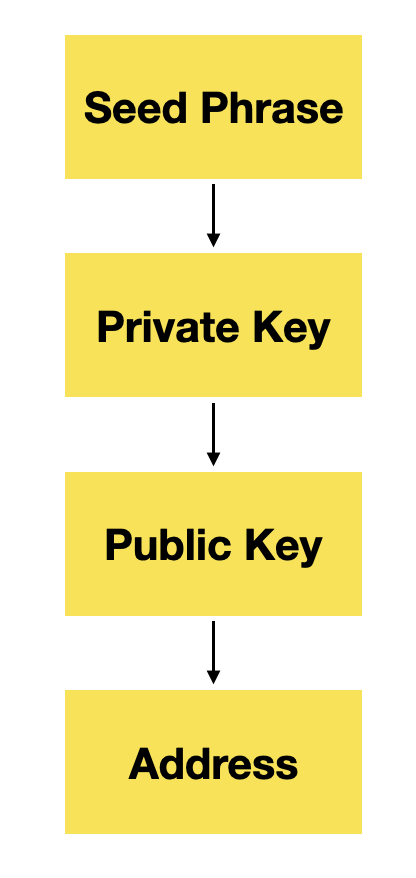We’ve been actively learning about and participating in the “crypto world” since around 2015, and we often come across questions that lead us down the crypto rabbit hole. Our goal is to learn the answer to the questions we have and report back to you in the easiest to understand way possible. The terms can be technical and difficult to understand, we aim to make it simple.
No, a public key is not the same as the address. Your public key is a large number, just like a private key. But instead of using it to send out bitcoin, it is used to receive bitcoin. On the surface, the public key and address appear to be similar, but they are different. An address is the “human-readable” form of the public key. It’s where you receive bitcoin.
If you still want to learn more about this, I’ll explain in greater detail the differences between a public key and an address. If this answered your question, I’m glad we could help. Please check out the rest of our articles at https://BrainsOfCrypto.com to learn more. That link will open in a new tab.
Where exactly does a public key fit in?
Okay so if you’re familiar with crypto, you have a seed phrase (NEVER SHARE THIS) that is the top level of accessing your account. The seed phrase is simply a representation of a random number. It’s an ordered sequence of 12 or 24 words, that is chosen from a list of 2,048 words. Your wallet uses cryptography to derive your private key using your seed phrase. After that, you have a private key, which is where you can actually spend your bitcoin.
If you think about in the real world, a seed phrase is kinda like the code you would use to get into the private safe in your house. It’s something that you should never tell to anyone. It’s where your private goods go, the things to keep extremely safe. Then you have private key, which is kinda like the ATM pin code to your bank account. You also keep that private, right?

The private key proves to the Bitcoin network that you own the bitcoin in the and allows you to spend your bitcoin.
You can think of the private key as the password that unlocks your private safe/vault, where all of your money is held. As long as you are the only one with access to the private key, your funds are safe.
A private key can derive a public key, but a public key cannot be used to access the private key. It’s a one way relationship. You can see this in the image below.

You can’t spend bitcoin by using a public key. You also can’t derive a private key from a public key. So it doesn’t actually need to be kept a secret. However many people believe you still should keep your public key private. This is often where people think something like “oh so my addresses, where I receive bitcoin, are just public keys.” That’s not exactly the truth.
So to recap, your wallet uses public keys to receive bitcoin, not to send bitcoin. Your public key also can’t be used to figure out your private key. This is where you might be thinking “Is a public key the same as the address?”
What Is An Address?
Think of an address as a “human-readable” form of a public key. It’s where you receive bitcoin. These addresses usually start with something like “bc1”, “3”, or “1”.
Is this still a little confusing? If so, I get it. It can be very confusing. The next part might help out a little bit more. Once again we use a one-way cryptographic function. A public key will generate a corresponding address. Just like with the public -> private key relationship, it’s a one-way relationship. A public key derives an address, but not vice versa.
Similar to how public keys work, the address doesn’t need to be kept secret because it is only used to receive bitcoin. You actually need to share the address in order to receive bitcoin.
I’m going to hopefully make this easy to see in a visual format with the little chart below.

What this means is that each address relates to a public key, which relates to a private key. This is how our wallet knows that an address belongs to us (seed phrase) and can spend the bitcoin on that address (private key).
What’s interesting is that your public key can derives multiple addresses. One private key can generate one public key, and one public key can generate one address. If you’re still interested in learning more about this, there is a great article here: The Ultimate Guide to Bitcoin Wallets, Seeds, Private Keys, Public Keys, and Addresses. This will open in a new tab.
Is It Possible To Guess Someone Else’s Private Key?
Andreas Antonopoulos has a brilliant video that explain this, also using a fabulous example with planets and grains of sand. I suggest you to take a look at that.
Recent Posts
How To Get The Best Performance from Decentraland on Your Computer
Hardware acceleration: https://docs.decentraland.org/decentraland/hardware-acceleration/ Hardware acceleration Since Decentraland runs in a web browser, you might need to configure your browser...
Are you looking to find the best NFT photography projects to invest in? NFT's are one of the best ways for artists to get paid for their work. The idea of a "starving artist" is finally switching and...